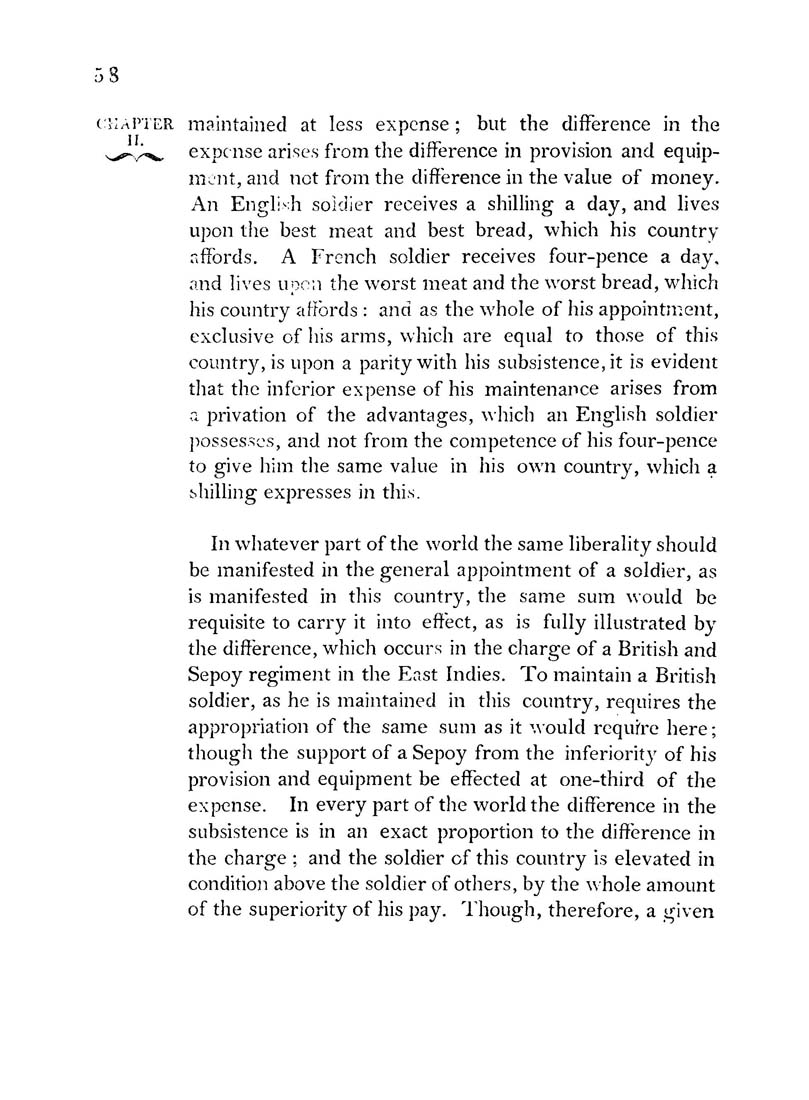o
cii/AriER maintained at less expense; but the difference in the
expense arises from the difference in provision and equip¬
ment, and not from the difference in the value of money.
An English soldier receives a shilling a day, and lives
upon the best meat and best bread, which his country
affords. A French soldier receives four-pence a day,
and lives upon the worst meat and the worst bread, wdiich
his country affords : and as the whole of his appointment,
exclusive of his arms, which are equal to those of this
country, is upon a parity with his subsistence, it is evident
that the inferior expense of his maintenance arises from
a privation of the advantages, which an English soldier
])osses.scs, and not from the competence of his four-pence
to give him the same value in his own country, which a
^hilhng expresses in this.
In whatever part of the world the same liberality should
be manifested in the general appointment of a soldier, as
is manifested in this country, the same sum would be
requisite to carry it into effect, as is fully illustrated by
the difference, which occurs in the charge of a British and
Sepoy regiment in the East Indies. To maintain a British
soldier, as he is maintained in this country, requires the
appropriation of the same sum as it \\ould require here;
though the support of a Sepoy from the inferiority of his
provision and equipment be effected at one-third of the
expense. In every part of the world the difference in the
subsistence is in an exact proportion to the difference in
the charge ; and the soldier of this country is elevated in
condition above the soldier of others, by the whole amount
of the superiority of his pay. Though, therefore, a given
|








